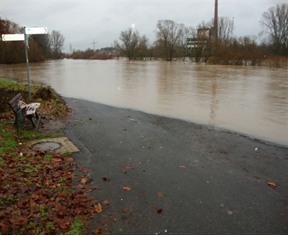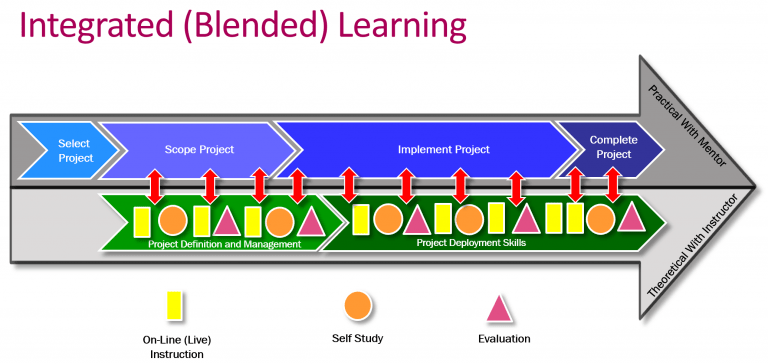Excellent Customer Service Is Only Necessary If There Is A Choice
Human behavior is as funny as it is interesting. We take as a given that with which we grew-up as a child – our country, local community, heritage, religion, government – collectively our experience. We are conditioned to not question that which is “normal” – because that is the way it’s always been. And not given an alternative to compare and contrast, we accept the status quo without challenge.
That is until there is an option, an alternative.
With products, it’s relatively easy to introduce a challenge to something that might already exist (in some form). For instance – music used to be sold on vinyl albums, then on magnetic media (cassette tapes), then on Compact Discs (CD’s), and now as electronic “mp3” files. Each time, the merits of the new-comer successfully challenged the incumbent – and the incumbent had to adapt or perish. There are very few examples of a “new and/or improved” not extinguishing the life of its predecessor – other than perhaps “New Coke™”.
Anecdote: When I was moving to Germany early last summer, my son Anton came across my collection of albums and asked what they were. I told him that is what we used to buy to listen to recorded music. He looked at it and said, “I can’t imagine the size of the Walkman”.
With service, it is more often than not much more difficult to introduce innovation and challenge – especially if a government or a government agency is involved. Those service industries, where competition and innovation has been allowed, have experienced increased customer service and innovation in their offerings. Industries such as; air travel and telecommunications – once highly regulated – have evolved far beyond what their highly regulated and unmotivated selves of the 1970’s, 1980’s and 1990’s.
Best of all, if consumers don’t like an offering from a company – or we don’t like the company at all for whatever reason – we can choose another.
Those service companies that are effectively protected by governments and regulations – those the consumer has to endure because there is no alternative – become the brunt of scorn, disrespect, and jokes.
We all know them; the Department of Motor Vehicles, the education industry, healthcare, politics itself, etc. – everywhere there is a monopoly where competition and innovation is otherwise squelched.
It’s funny – a few years ago, the New York State Department of Motor Vehicles (DMV) deployed a website where much of the routine activities of re-registering a vehicle and the like can be done. No longer did people have to go to the local county-run DMV office to do much of the business they had. Almost overnight, the local DMV office became more customer-oriented. Why? Because the local DMV office didn’t get nearly as big a piece of the revenue if the business was done on-line at the State level and they needed to retain their customer-flow at the local level. The customer had a choice.
Always follow the money. That is where the source of motivation will be found.
Thankfully and for the most part, free-enterprise and laissez-faire is the order of the day in the United States. This is not so in most of the rest of the world – with its absence being especially noticeable in places where you would expect a more “modern” approach to business and the way businesses treat their customers.
A few months ago, and as most of my readership knows by now, I relocated to Germany – the following are some “observations” I have had with respect to dealing with German companies and the customer service I have received.
Everyone in the developed world relies on telecommunications to connect with colleagues, friends, family and the rest of the world. This would also be true in developing countries like Germany – if it were not for Deutsche Telecom and the rest of the companies in the German Telecommunications Industry.
On Land-Lines and Internet: One of the first action-items when I arrived in Germany was to get a land-line and internet service installed. Deciding on which company to use was relatively easy as there is only one, Deutsche Telekom (DT). There are others, but they all rely on DT for the “pipe” and have to use DT technicians for all service into the home or office.
So I go to the DT office in Frankfurt, review the options and engage their services. I am told it will take up to two weeks for a technician to install the service at the house. I am wondering why they just can’t give me the DSL Modem for me to install and have the computer center push the button that activates the service – after all, the line is already there. They are left wondering the same.
A week later, a box with the DSL modem from DT shows-up – and a week after that the service technician shows up to install the service.
In the States, I am used to a Verizon or Time-Warner van showing-up whenever on-site service is required. And I am convinced that the technician could build the Space Shuttle from the components and inventory in that van.
DT sends a woefully unprepared and inexperienced kid in a SmartCar….
Of course, he doesn’t have all the components he needs to do the job (like a splitter, for instance) – and there is no Radio Shack around. So he has to schedule a return appointment for the FOLLOWING WEEK.
Yes – it takes THREE WEEKS to get a land-line and DSL internet service.
In Germany, you have to plan far in advance and minimize your telecom expectations.
I am left convinced that DT simply does not care about the customer or delivering customer service – and why should they? They sell a needed service and have no competition. Someday…someday…
On Television: I could have received television service from DT also – as long as I was interested in viewing the German-speaking channels (with a couple of English-speaking channels thrown in for “diversity”). However, I decide that satellite television would be the better solution for me.
I review the various options – as there are a few options for satellite television in Germany – and decide on Sky Deutschland (a Rupert Murdoch / News Corp company). They seem to have the best overall offering. My relocation consultant helps with sorting the contracts.
Once signed (in the middle of November) and based on my travel plans for late November into December, they schedule the installation for the middle of December – fair enough. But come the middle of December, Frankfurt is hit with snows and Sky calls to postpone the installation as they don’t want their installers on roofs when it’s snowing. This makes reasonable sense, especially since they had not lived or trained in Upstate New York; where snow, wind, and cold are the norm – rather than the exception.
Today, January 13, is the day that the Sky technician finally shows to install the satellite television service.
To those of you who might be unfamiliar; Satellite Television involves the installation of a parabolic “dish” antenna – it looks like a giant Chinese wok used for cooking. Since the system gets its signal from a satellite orbiting high above the Earth, the antenna needs an unobstructed view – line of sight – to the satellite to pick-up the signal. The best place to put a satellite antenna is on a roof (or other high-place on the building).
The supposedly highly-trained and competent installer for Sky shows up in a personal vehicle and DOES NOT HAVE A LADDER. I am wondering, “How the heck can he be so basically unprepared to do his job?” How is he going to install the satellite antenna without a ladder?
Simple, he asks to borrow mine…
I am not kidding – he actually asks to borrow mine. If I don’t have one, he is going to have to reschedule. Can you believe it?
In the States – not only would I not have the opportunity to loan the technician my ladder (or any other tool or part) because the technician would be fully prepared – I would not be able to loan the ladder for liability reasons.
 I figured to loan the ladder and get the job done is best.
I figured to loan the ladder and get the job done is best.
Worst-case scenario; he falls off the ladder and kills himself (or I have to finish the job). I have all the parts I need (hopefully) and I could complete the installation of the satellite antenna myself. Afterwards, I can take the body of the technician, put him in his car, and drive the car into the raging flooding river just 50m from my house.
…Perfect.
Despite all of this – Sky Deutschland seems to be doing a good business here in Germany,according to Bloomberg.
On Cell (Mobile) Phones: If a person wants to buy a mobile phone in the States (called a “handy” in Germany) – they go to one of unlimited stores, select a service provider, a service plan and a phone, and – assuming they have some means of payment – they are done and on their way. Most plans will let you call anywhere in the States – for almost as long as a person can talk in a month – for one low monthly rate.
This is not the same in Germany (or other EU countries). Keep in mind that Germany is roughly the size of Montana in the United States, but it has roughly 82 million people living there (roughly the same as California, New York and Texas combined). So it’s rather small geographically, but densely populated.
I bought my mobile phone from Vodocom. With it, I can call anyone within Germany for one monthly fee. But if I want to call anyone outside of Germany, I have to pay long distance. Also, if I am not in Germany and I use my phone, I incur roaming charges (which are outrageously and unjustifiably expensive).
I drove from Brussels, Belgium (size of Maryland) – through France (size of Texas),Luxembourg (smaller than Rhode Island), the Netherlands (small than New Jersey) – to Frankfurt, Germany and it took me only four hours. Think about it, five (5) countries in four (4) hours – on the ground. The road-signs switched languages 3.5 times (Belgium and Luxembourg have a mix of French, Dutch, and German). And each of these countries would have whacked me for roaming and long distance. Unbelievable, but “normal”.
However, there is competition in Germany in the mobile telephone industry and the customer service is reasonably comparable to that which I have received from Verizon Wireless in the States – not great, but not bad.
Demented and sad, but social: All-in, I have been in a customer service desert for my first six months of being in Germany as compared to the States (and most other countries I have visited) – with the sole exception of Italian Restaurants here where the service is outstanding. The strangest part is that the Germans seem to know this is the situation, accept this as the norm and almost take pride in it being as it is.
Yes, the German’s are truly the funniest people in the world…
…they just don’t know it.
 Joseph F Paris Jr is the Chairman of the XONITEK Group of Companies. With over twenty years as entrepreneur, academic and professional instructor, and strategic consultant – he is a champion of Operational Excellence (Lean Six-Sigma and Leadership) who has devoted himself to increasing stakeholder-value for his clients and constituents.
Joseph F Paris Jr is the Chairman of the XONITEK Group of Companies. With over twenty years as entrepreneur, academic and professional instructor, and strategic consultant – he is a champion of Operational Excellence (Lean Six-Sigma and Leadership) who has devoted himself to increasing stakeholder-value for his clients and constituents.
Contact him at parisjf@xonitek.com







